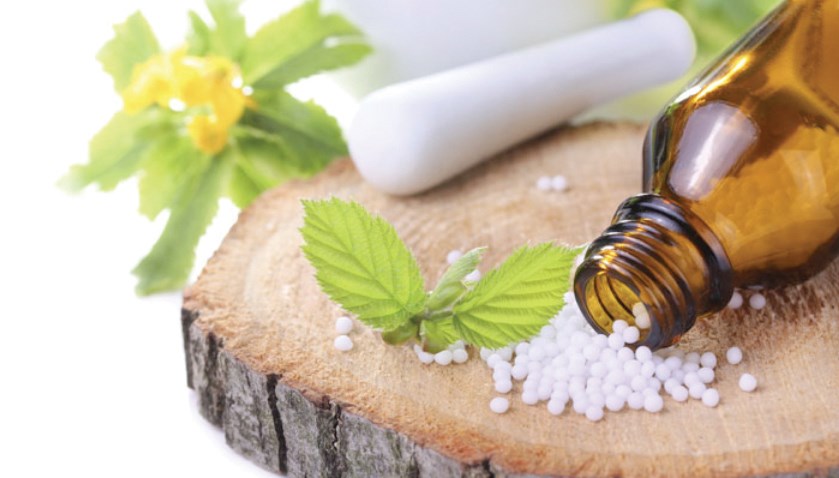Imagine getting sick in the late 1700s. You might simply get well again, or you might look for a physician to treat you. Treatment at that time could include bloodletting or purging; surgery might be performed, but without anesthesia or sterile technique. And you might die as a result.
It was in this environment that a German physician, Samuel Hahnemann, devised the idea of homeopathy. He founded it on a belief that like cures like, the idea that whatever caused disease could also cure it. Given the alternatives, this was a very welcome addition to treatment options.
Fundamental to homeopathy is the dilution of substances: the more diluted the greater the potency. Some substances are diluted a billion or more times. As the dilution increases, the original substance may even disappear, but homeopaths claim that even if the original substance in effect disappears, its pattern remains in the liquid and can produce an effect.
Clinical trials over the past 20 years have tested the various claims of homeopathy including its treatments for allergies, migraines, colds and diarrhea, finding no support. For example, Australia’s National Health and Research Council reviewed 176 existing studies and concluded that “there are no health conditions for which there is reliable evidence that homeopathy is effective.”
Around 1900, homeopathy was largely displaced by science-based medicine. We began to learn about germs causing disease, vaccines and the need for sterile operating conditions. So why does homeopathy persist? Some people are attracted to homeopathy because they see it as a gentler alternative to modern medicine. They also react to the “natural” label often affixed to homeopathic remedies. And because they are so extremely diluted, there are not likely to be any negative side effects from the solution.
But that’s not enough to explain continued belief. One explanation advanced by non-believers is that any apparent success from homeopathy comes from a placebo effect. Practitioners spend a lot of time discussing their client’s health and lifestyle, aiming to treat the whole person, not just the illness. The placebo effect occurs when a belief in a remedy or in the power of a trusted practitioner triggers an improvement in symptoms and health, even if the treatment is a fake pill or ineffective procedure.
Given that most homeopathic remedies contain little if any actual ingredients beyond water and sometimes sugar, it is unlikely that any direct harm could come from taking them. Unfortunately, choosing a homeopathic solution can mean a delay in the use of proper diagnosis and truly effective medical treatment.
According to everything we know about biology, chemistry and physics, homeopathy is highly implausible and should not work. When we properly evaluate homeopathic remedies we find that they, indeed, do not work. Today, homeopathy is a billion-dollar business, but it is no more effective than it was two centuries ago.


